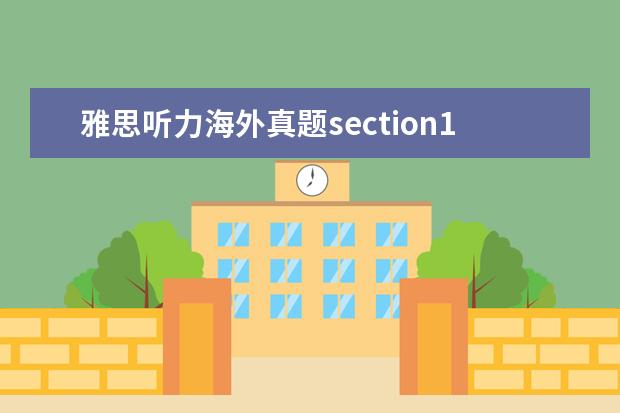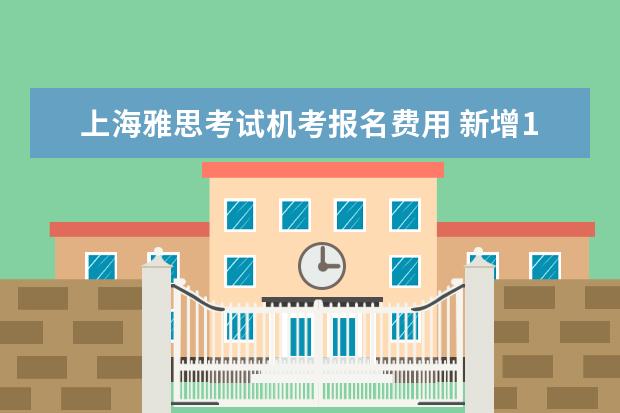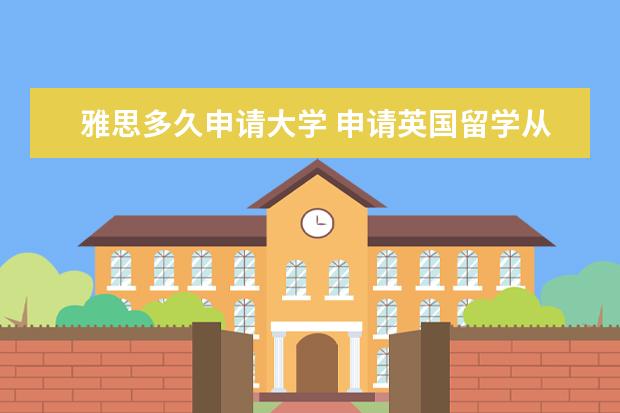当前城市:淄博[切换]
- 手机雅思无忧

扫码登录
雅思考试主要是通过对考生听、说、读、写四个方面英语能力的考核,综合测评考生的英语沟通运用能力,实现“沟通为本”的考试理念。对于雅思考生来说,也有很多考试难点和政策盲区需要帮助解答。今天雅思无忧网小编准备了雅思听力取消example样题 雅思考试听力开始后,在听section1 example的时候,可...,希望通过文章来解决雅思考生这方面的疑难问题,敬请关注。
你是哪里的?我也想考的。如果同城可以联系吗?我整理的有点乱不好意思,你COPY到自己电脑里整理一下吧!
新托福口语部分的应对策略
1.加强对托福考试中常出现的单词的掌握,进而扩大词汇量。词汇量是取得托福考试几个项目成功的关键。因此,不管是对于哪个项目的复习准备都离不开单词的掌握。为了有效准备新托福口语测试的命题形式,考生需要准确掌握单词的发音、词性、搭配等三个方面,避免在语音上出现问题,影响最终的表达。
2.加强语法、句式和常用口语表达法的掌握。在新托福口语测试中,有一点是检查考生语法基础的。
3.提高英文的阅读能力,主要练习速读找出文章主旨和关兄扰键信息点的能力。
4.提高英文的听力能力,通过对一段听力段落的理解,能够抓住文章的主要内容和关键的信息点,并且能够纪录关键词、关键句。
5.熟悉新托福口语测试的出题形式。对于新托福的口语部分,考生一定要在考前熟悉其出题样式。对于所提问的题目,考生需要正确使用语法知识,熟练掌握常用词汇,除此之外,考生还要用简洁的语句说出答案,其中又包含着较强的概括能力。
6.训练如何选材,组织语言,建立对6道口语问题的模版,在短时间内进行有效的描述和论证。只有这样真正在考场上考生才能胸有成竹,充满自信.
7.记笔记的能力.在新托福口语考试里,作笔记的能力是至关重要的.首先要学会如何辨认哪些是有用信息,提炼观点和最直接的佐证;如何同意转述,整合信息(将听力和阅读材料有机结合起来的能力);以及有针对性地发表个人意见.此外,听出说话人的态度,意图和语气,熟悉常见的语用功能也是非常重要的。
8.熟悉场景.新托福口语考察的是北美大学生活环境下的英语沟通能力.因此,熟悉北美大学的学术及生活中的多种场景是很重要的.考生应尽可能熟悉所有场景的话题和相关词汇,做到心中有数。对于结构方面,考生需要训练如何安排材料,如何运用信号词,转承连词(这也是中国考生较薄弱的环节),使你的叙述更加清晰,完整,连贯。
9.另一个需要加强的能力就是语音,语调,和句子重音的应用。这也是评分标准之一。最后一点就是考生需要训练对时间羡厅旦和节奏的把握。
以上一些建议是考生应对托福新题口语部分非常中要的基本能力,对于新托福口语部分,考生更需要掌握足够多的解题方法和技巧,凭借一定的基本功和针对新托福考试比较常用的解题方法和技巧完成对新托福口语测试的准备。
新托福听力新增题型伏肢解析
新托福听力新增题型之“ListenAgain”是本次变革中最为显眼的听力测试形式。此测试形式之新颖独特处,乃览望国内外众多英语听力考察形式之未见所闻。
顾名思义,所谓“ListenAgain”即在新托福听力考试的某篇文章结束后,其中某一题采取再次复听,然后根据所听来做推断既而回答题目的形式来考察考生。对新托福考试关注者会发现,早在新托福考试刚浮出水面时,世面上众多分析文章评论说:“新托福听力考试可以听两遍了”。我们下这样的定义不能说不对,但似为偏颇,至少会误导对新托福听力不甚了解的朋友会真的以为整个新托福听力考试可以重复放音听两遍了。这也怪不得关注新托福考试的先驱者。在未见其真面目时,仅依其官方网上透露的内容去揣摩难免会被ETS误导,即便是现在ETS在网上公布的新托福在线测试样题与9月份真正在北美正式投入使用的新托福考试题也是有差别的。在这里笔者稍做澄清:(1)新托福考试放音过程是一遍完成;(2)只有“ListenAgain”这种新增题型可以再次复听文章中的某一部分,并根据再次回放的这部分回答特殊的问题。
看题:
下面我们看一篇新托福听力样题(此样题的考察问题全部为此种新增ListenAgain题型)
(narrator)Listentotwostudentdiscussingazoologycourse
(man)Now,wecanmoveontodiscussthenextpartofthechapter,thepartofthechapter,thepartonlandtortoises
(woman)Yes.Landtortoisesaretortoisesthatdon’tliveinthewater,althoughtheymaylivenearthewater.Theyonlycometothewatertodrinkorbathe.
(woman)Oh,lookhereinthebook.Here’sapictureofoneofthe40kindsoflandtortoises.
(man)Landtortoisesaretheonesthatlivetosuchlongages,aren’tthey?
(woman)Yes,myfavoritepartofthechapterwasthepartthatwasabouthowlonglandtortoisescanreallylive.
(man)Howoldcantheylivetobe?
(woman)It’snotreallyknownforsure.Therearelotsoftraditionalstoriesabouttortoisesthatlivedforhundredsofyears.Idorememberhearing,whenIwasyoung,abouttortoisesthatweresupposedtobeone-totwohundredyearsold.
(man)Thatcouldn’tbeNoway.
(woman)Well,there’realotofstories,butthere’snoaccuraterecords,soit’simpossibletoverifywhetherornotthey’retrue.
(man)Well,howoldistheoldesttortoiseonrecord,doyouknow?
(woman)InthechapterIjustread,itsaidthattheoldesttortoisewhoseagecanbeverifiedtosomeextentistheoneknownasMarion’stortoise.
(man)IreadthatMarion’stortoisewas152yearsold.
(woman)Actually,Ithinkthebooksaiditwasatleast152yearsold.Itwasprobablyolder.
(man)So,they’renotreallycertainhowoldMarion’stortoisereallywaswhenitdied.WhatistrulyknownaboutMarion’stortoise?
(woman)It’scertainthataFrenchexplorernameddeFresne,MariondeFresnecapturedan*tortoisein1766,andhetransportedthetortoisetotheislandofMauritiusinthatsameyear.
(man)Well,whendidMarion’stortoisedie?Arethereauthenticrecords?
(woman)HistoriansaresatisfiedwiththeauthenticityoftherecordsthatshowthatMarion’stortoisediedin1918.
(man)Howdotheyknowitwasthesametortoise?Couldithavebeenadifferenttortoisethatdiedtherein1918?
(woman)Tortoisesdon’toccurnaturallyonMauritius,soMarion’stortoisewastheonlytortoiseontheislandofMauritius.
(man)AndsothistortoisehadbeenontheislandofMauritiusfor152yearswhenitdied.
(woman)That’sright.Marion’stortoisearrivedinMauritiusin1766anddiedin1918,sothatwouldmakeitatleast152yearsold.
(man)Butdidn’tyousaythatthetortoisethatwascapturedandbroughttoMauritiu*yMariondeFresnewasan*whenitwascaptured?
(woman)Yes.SoMarion’stortoisewasknowntohavelivedfor152yearsonMauritius.Butbecauseitwasan*whenitwascapturedin1766andit’sunclearhowolditwasatthattime,itcouldhavebeenconsiderablyolderthan152yearswhenitdied,maybe180yearsormore.Twohundredyearsoldforthistypeoftortoiseisn’tinconceivable.
(man)Soatortoiselivingtotheageof200maybepossible,butthere’renoverifiedrecordsofsuchatortoise.
(woman)Exactly!
(1)Whydoesthemansaythis:Nowwecanmoveontodiscussthenextpartofthechapter,thepartonlandtortoises
(a)Toindicatethenexttopicfordiscussion
(b)Tosuggestanewlocationforthediscussion
(c)Tostatewhathaspreviouslybeensaid
(d)Toclarifywhytheyarehavingthediscussion
(2)Listenagain——Woman:Therearelotsoftraditionalstoriesabouttortoisesthatlivedforhundredsofyears.Idorememberhearing,whenIwasyoung,abouttortoisesthatweresupposedtobeone-totwo-hundredyearsold.
Man:Thatcouldn’tbeNoway.
Howdoestheseemtofeelwhenhesaysthis:“That’scouldn’tbeNoway”
(a)Unhappy
(b)Incredulous
(c)Incapable
(d)Disturbed
(3)Listenagain——(woman)InthechapterIjustread,itsaidthattheoldesttortoisewhoseagecanbeverifiedtosomeextentistheoneknownasMarion’stortoise.
(man)IreadthatMarion’stortoisewas152yearsold.
(woman)Actually,Ithinkthebooksaiditwasatleast152yearsold.
Whydoesthewomansaythis:“Actually,Ithinkthebooksaiditwasatleast152yearsold.”
(a)Tocontradictwhatwasinthebook
(b)Toindicatethatsheisnotsurewhatiscorrect
(c)Torestatewhatthemansaid
(d)Tocorrectanerrorbytheman
(4)Listenagain——(woman)HistoriansaresatisfiedwiththeauthenticityoftherecordsthatshowthatMarion’stortoisediedin1918.
(man)Howdotheyknowitwasthesametortoise?Couldithavebeenadifferenttortoisethatdiedtherein1918?
Whatdoesthemanmeanwhenhesaysthis:“Howdotheyknowit
wasthesametortoise?Couldithavebeenadifferenttortoisethat
diedtherein1918?”
(a)Whatwassaidsoundsplausible
(b)Marion’stortoisewasnotontheislandofMauritius
(c)Theremaybe*ternateexplanation
(d)Therewasonlyonetortoiseontheisland
(5)Listenagain——(woman)Yes.SoMarion’stortoisewasknowntohavelivedfor152yearsonMauritius.Butbecauseitwasan*whenitwascapturedin1766andit’sunclearhowolditwasatthattime,itcouldhavebeenconsiderablyolderthan152yearswhenitdied,maybe180yearsormore.Twohundredyearsoldforthistypeoftortoiseisn’tinconceivable.
Whichsentencebestdescribeshowthewomanfeelswhenshesays
this:“Twohundredyearsoldforthistypeoftortoiseisn’t
inconceivable”
(a)Itispossibleforatortoisetolivefor200years
(b)Atortoisecouldnotpossiblylivetotheageof200
(c)No200-year-oldtortoisehaseverbeenfound
(d)Manytypesoftortoiseslivetobeveryold
(注)以上五道题目中带阴影部分皆是再次回放的内容。
解析:
新增ListenAgain题型属于测试考生Pragmaticunderstanding(recognizeaSpeaker’sattitudeordegreeofcertainty;recognizeaspeaker’sfunctionorpurpose)即实际理解的能力。此类能力测试在整个新托福听力测试的比重占25%之多。也就是说,ListenAgain题型处理好,新托福听力的总34道题目你将会解决至少6道题目。
那么到底ListenAgain题型让我们考生实际理解什么?很简单,即要求考生去理解你再次听到的那段话中的:
(1)Function(purpose):
askyoutounderstandnotjustwhatthespeakersaidbutwhythespeakersaidit.Forexample,todeterminethataspeakersaidsthinordertoapologize,explain,clarifyapoint,changeatopic,indicateachangeofopinion,orsuggestanewaction.(上面样题第一题即是)
(2)Stance(attitude)
Askyouhowthespeakerseemstofeelaboutaparticulartopic.Forexample,todetermineifthespeakerfeelsPositiveornegative,happyorsad,impressedorunimpressed,orenthusiasticorboredaboutaparticularTopic.AlsoaskaboutwhetheraspeakerisdoubtfulorCertainaboutwhatheorsheissaying.(上面样题后四道题目即是)
简单的说即对再次回放内容中讲话者讲此句话的目的或者态度进行推断。因此,考生解答此种问题时即便在全文放音过程中不知所云,也要在ListenAgain时,务必把握ListenAgain内容——Listencarefullytowhatthespeakersaysinthepartofthepassagethatisrepeatedandthendrawaconclusion。
技巧:
其实根据上面样题所示,你也会发现:(1)勿须理解全文,只要理解ListenAgain的内容你就可以对题目进行做答。(2)听再次回放内容时对讲话者的语气、语调应尤为关注。如第2题的那句That’scouldn’tBeNoway讲出来时语气格外激昂,可见讲话者的意图是针对第一人话语的一种不信,一种否定。(3)以往旧托福的解题技巧仍可应用,如第3题。以往在小对话中有这样一种叫做Actually的题型,即在答句开头听到Actually时,必为否定第一人观点的。第3题女方选手开头Actually,那么看哪个选项是否定男方的,D这个答案TocorrecttheErrorbytheman即入选。
结论:
根据以上新增题型的解析,值得我们考生兴奋的是:此类题型应属送分题型,即便全文整体概念、信息模糊不清,但仍可只依靠再次回放的部分解决此种题型。再深入探求其本质,难道我们还能下新托福听力取消了原来小对话部分这样的定义吗?此种新增题型,不正是以往小对话所测试我们的基本所在吗(让我们去做推论)?只不过,现在的新增部分综合了95年8月前的单句题和95年8后的小对话题而已。现在的“ListenAgain”题型——说它是单句题,它比单句题稍微显长显复杂;说它是小对话题,它比小对话题测试内容上要稍显更实际、更结合与学术。这不正是ETS此次托福考试改革关于听力部分的宗旨(AcademicListeningSkills:TheListeningsectionmeasurestesttakers’abilitytounderstandspokenEnglishfromNorthAmericaandotherEnglish-speakingcountries.Inacademicenvironmentsstudentsneedtolistentolecturesandconversations.)吗?
尾声:
据本文所引、所论,透析ETS之诡计多端于新增题型处,故此,我们该做到剥去新托福听力新增题型的伪装,立在ETS出题的科学规律上“去违存真;弃相修真”,并再次高呼:“新托福听力——道是有变却无变!”。这更是一种在出国路上、在人生奋斗途中屡遇险阻、逢遇叵测,即便疲惫、憔悴、厌倦甚至想要退缩时我们坚定的目光与困难摩擦并迸射——坚持的声音!那让我们一路镇定,泰然,从容,坚强的走下去吧!
(答案)(1)A(2)B(3)D(4)C(5)A托福,雅思,GRE和GMAT的区别
托福,雅思,GRE和GMAT有什么区别
答:托福,雅思,GRE和GMAT都是出国留学的考试,它们最大的区别是,GRE和GMAT都是由美国教育考试服务处(EducationalTestingService,简称ETS)主办的美国研究生入学考试。GRE(全称GraduateRecordExaminations)是美加大学各类研究生院(除管理类学院,法学院)要求申请者所必须具备的一个考试成绩。GMAT(全称GraduateManagementAdmissionTest)是国外工商管理硕士MBA入学考试。
而托福和雅思则为申请进入国外大学学习的英语入学考试。
托福的英文为TOEFL,是英文TestofEnglishasaForeignLanguage的缩写。它是由美国教育考试服务处(EducationalTestingService,简称ETS)举办的为申请去美国或加拿大等国家上大学或进入研究生院学习的非英语国家学生提供的一种英语水平考试。1981年下半年,国家教育委员会批准建立中国国外考试协调处,负责管理和承办TOEFL等国外考试业务。
雅思的英文为IELTS,是英文InternationalEnglishLanguageTestingSystem的简写,它由英国剑桥大学考试委员会(TheUniversityofCambridgeLocalExaminationsSyndicate-UCLES)、澳大利亚高校国际开发署(IDPEducationAustralia)及英国文化委员会(TheBritishCouncil)共同举办的面向母语为非英语人士的英语水平考试。它于1990年4月在我国开始推广。雅思考试分为两种,即GeneralTrainingModule(通常我们所谓的移民类)和AcademicModule(通常我们所谓的学术类或留学类)。
托福和雅思两种考试各有什么特点呢?
托福考试是美式英语的考试,雅思考试是英式英语的考试。托福考试是美国人出题,所以它以美式英语为基准,因此在托福听力中完全是标准的美音,美式的习语、俚语也时有出现,更有大量的关于美国的历史、文化、政治、地理等方面的内容。而雅思考试由于考试当局是以英、澳两国为主,因此在听力中发音力图做到国际化,也就是说各国口音都会有所表现,但以英、澳发音为主,其中的阅读经常涉及的文化地理知识以这两国居多。现在社会英语学习的潮流以美式英语为主,而说一口标准的美音,则更是被大多数人所羡慕,从这一点来说,托福考试无疑具有一定的优势。
托福和雅思两种考试具体考核内容:
雅思考试共分听力、阅读、写作和口语四个部分,考试时间为2小时45分钟,而移民类与留学类只是在阅读和写作两个单项上有区别,在口试与听力上则采取同样的题目。雅思考试听力、阅读、
以上就是雅思无忧网为您准备的雅思听力取消example样题 雅思考试听力开始后,在听section1 example的时候,可...全部内容。访问雅思无忧网(https://www.yasi.cn/),了解更多雅思考试新消息,新动态。
雅思培训 雅思听力最后一道题 雅思考试听力开始后,在听section1 example的时候,可...
雅思听力最后一道题 雅思考试听力开始后,在听section1 example的时候,可...
雅思考试主要是通过对考生听、说、读、写四个方面英语能力的考核,综合测评考生的英语沟通运用能力,实现“
2023年09月15日 17:21 雅思听力海外真题section1 雅思考试听力开始后,在听section1 example的时候,可...
雅思听力海外真题section1 雅思考试听力开始后,在听section1 example的时候,可...
雅思考试主要是通过对考生听、说、读、写四个方面英语能力的考核,综合测评考生的英语沟通运用能力,实现“
2023年06月11日 12:24 雅思听力顺序真题怎么看 雅思考试听力开始后,在听section1 example的时候,可...
雅思听力顺序真题怎么看 雅思考试听力开始后,在听section1 example的时候,可...
雅思考试主要是通过对考生听、说、读、写四个方面英语能力的考核,综合测评考生的英语沟通运用能力,实现“
2023年06月11日 12:54 雅思听力真题题目分值 雅思考试听力开始后,在听section1 example的时候,可...
雅思听力真题题目分值 雅思考试听力开始后,在听section1 example的时候,可...
雅思考试主要是通过对考生听、说、读、写四个方面英语能力的考核,综合测评考生的英语沟通运用能力,实现“
2023年06月17日 04:32 雅思真题后面听力材料 雅思考试听力开始后,在听section1 example的时候,可...
雅思真题后面听力材料 雅思考试听力开始后,在听section1 example的时候,可...
雅思考试主要是通过对考生听、说、读、写四个方面英语能力的考核,综合测评考生的英语沟通运用能力,实现“
2023年06月16日 21:20 上海雅思考试机考报名费用 新增114场雅思考试 部分考试已经开始报名
上海雅思考试机考报名费用 新增114场雅思考试 部分考试已经开始报名
雅思机考报名费雅思报名费:普通学术类雅思考试报名费2020用于英国签证及移民的雅思考试报名费2070
2025年12月15日 21:48 2025申请季即将开始,意大利硕士申请要求和申请材料有哪些?
2025申请季即将开始,意大利硕士申请要求和申请材料有哪些?
24年意大利留学|米兰理工大学2025年春季入学将于5月15日开启申请米兰理工大学2025年春季入学
2026年01月13日 05:56 雅思多久申请大学 申请英国留学从大几开始准备雅思更合适?
雅思多久申请大学 申请英国留学从大几开始准备雅思更合适?
关于雅思考试时间和申请时间的安排问题1。英国大学研究生的申请考核一般是从每年的九月份开始。九月为第一
2026年01月13日 20:21 留学葡萄牙 | 里斯本大学学院ISCTE-IUL硕士申请开始啦!(申请信息+英授&葡授专业推荐)(葡萄牙里斯本大学商学院ISEG硕士申请指南|最新版出炉啦~)
留学葡萄牙 | 里斯本大学学院ISCTE-IUL硕士申请开始啦!(申请信息+英授&葡授专业推荐)(葡萄牙里斯本大学商学院ISEG硕士申请指南|最新版出炉啦~)
留学葡萄牙|里斯本大学学院ISCTE-IUL硕士申请开始啦!(申请信息+英授&葡授专业推荐)里斯本大
2026年02月16日 10:32 雅思考试报名怎么取消
雅思考试报名怎么取消
雅思取消在俄境内考试,考试费不退?QS排名也将剔除俄罗斯院校?雅思取消在俄境内考试,考试费不退转为培
2025年12月28日 07:24